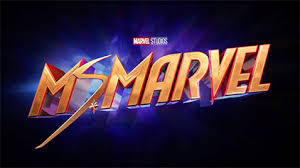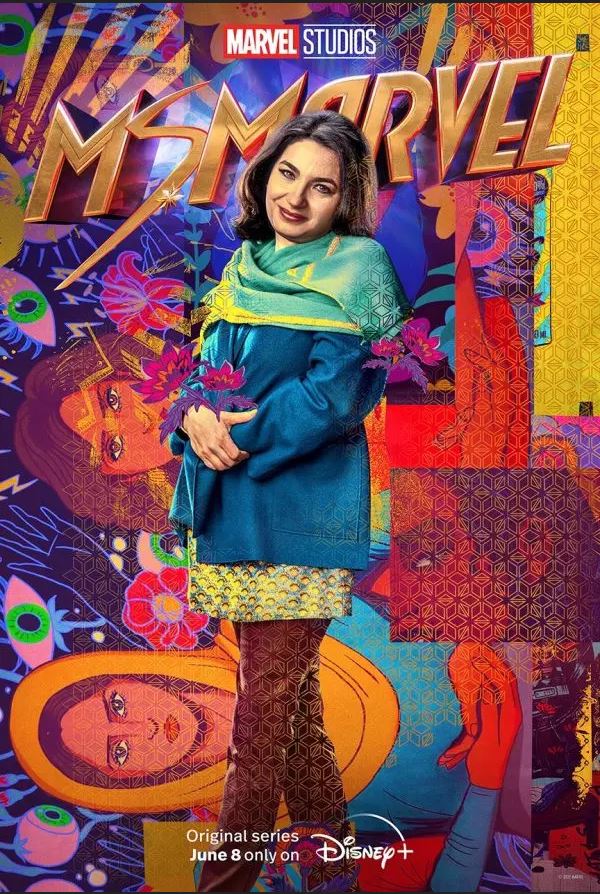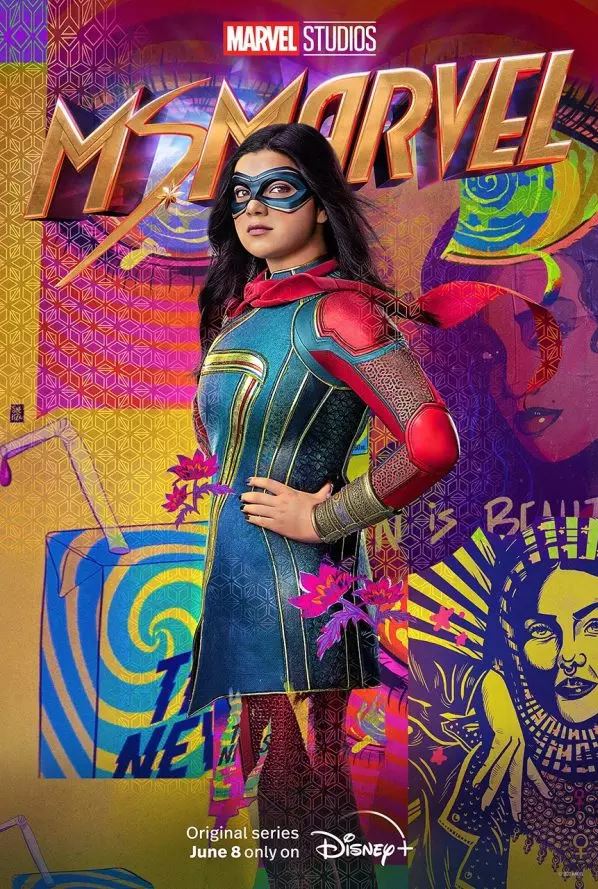The Ms. Marvel TV series is the best-written and most consistent series from the Marvel Cinematic Universe (MCU) – I Loved it!

The current Ms. Marvel first appeared in August 2013. Kamala Khan is a Muslim teenager whose superpowers are activated by Terrigen Mists (see Inhumans). In the comics, Kamala is able to morph her body in ways similar to Mr. Fantastic and Metamorpho. The book was a hit when it came out, and I picked up the first trade paperback collection of issues #1-5.
I did not care for it.
The story and artwork were solid, but I didn’t find the character or her powers interesting enough to continue with it. For sure, I knew that Ms Marvel was a quality book, but it also was a book not written for this 40-something white male comic fan. That’s alright, there’s room on the newsstand for all kinds of books.
So, when the series was announced, I did not have high hopes it would be something I would enjoy. Then they cast Zenobia Shroff, one of my favorite actors, in the role of Kamala’s Mother, Muneeba. I became a fan of Shroff when I first saw The Big Sick in 2017 and was struck by how magnetic her performance was, so much so that I felt she stole every scene she was in. Bigger roles should have followed that performance, but aside from a 6 episode stint on Showtime’s The Affair (where she stole ever scene she was in), it appears that Hollywood couldn’t find a way to use a highly-talented Indian actress in anything substantial (are we surprised?). But with Zenobia cast in Ms. Marvel, my interest piqued.

The problem with every Netflix Marvel series was that they tried to stretch storylines that would fit 6-8 episodes into a 13 episode season. The MCU Disney+ shows have 6 or 9 episode runs and avoid the “padding” problem, but each series has had something about them that just didn’t work well. For example, WandaVision was a spectacular show, but it petered out at the end (Thanks, COVID!) and Moon Knight had a problem of too many episodes with no Moon Knight in them.
From the jump, the writing on Ms. Marvel was crisp, economical and smart. Iman Vellani as Kamala Khan does such a great job of being a real teen – both annoyingly and heartwarming – that I can’t believe she doesn’t have much acting experience. I liked getting to see a representation of a realistic Muslim family without it being ham-fisted or stereotypical. Indeed, one very cool thing about the show is how it purposely swerved away from most tropes. An early establishing scene at her school has Kamala walking through a gauntlet of kids who do not regard her well. I was expecting yet another over-the-top portrayal of the bullied kid, when suddenly she meets up with her friends and the mood goes from tense to happy. One tired comic book trope is the confidant of the superhero who eventually becomes a nemesis. It looked like Kamran, a boy Kamala has a crush on who is also the son of the leader of the Clandestines (the bad guys), would eventually turn evil and fight Kamala, but the show did a clever turn away from that. All said, the one tired trope that was in the show was the main character oblivious to their best friend totally crushing on them. Ugh. Kamala is smarter than that.

As I had expected, Zenobia Shroff steals…every…freaking…scene she’s in, and her interplay with Mohan Kapur, who plays Kamala’s Father Yusuf is magical, as is the family dynamic. Zenobia and Mohan could easily be the leads in a very entertaining non-superhero sitcom about the family. Again eschewing familial Hollywood tropes, Kamala’s parents are reasonable and not over-bearing. They get hurt when Kamala lashes out at them, but eventually forgive and move on. Kamala’s mom even evolves her thinking during the series, where she first avoids her family’s past, then allows and helps Kamala discover her heritage.
The Partition of India plays an important part of Kamala’s backstory, and I was impressed by how well the event was integrated into the story without bastardizing it. In HBO’s Watchmen series (which I think is absolute crap), I feel the 1921 Tulsa Race Massacre is used and bastardized as a plot device. Ms. Marvel perfectly told the story of Partition without involving super-powered characters, but rather showing the event’s long-term effects on the characters.
The action scenes were worthy of the character, and the adjustment of her superpowers from the comics was necessary and was pulled off beautifully. <Spoiler Alert> Kamala Khan is a mutant.
Ms. Marvel was awesome, and I look forward to more MCU stories about the character and her very well-rounded and interesting supporting cast.